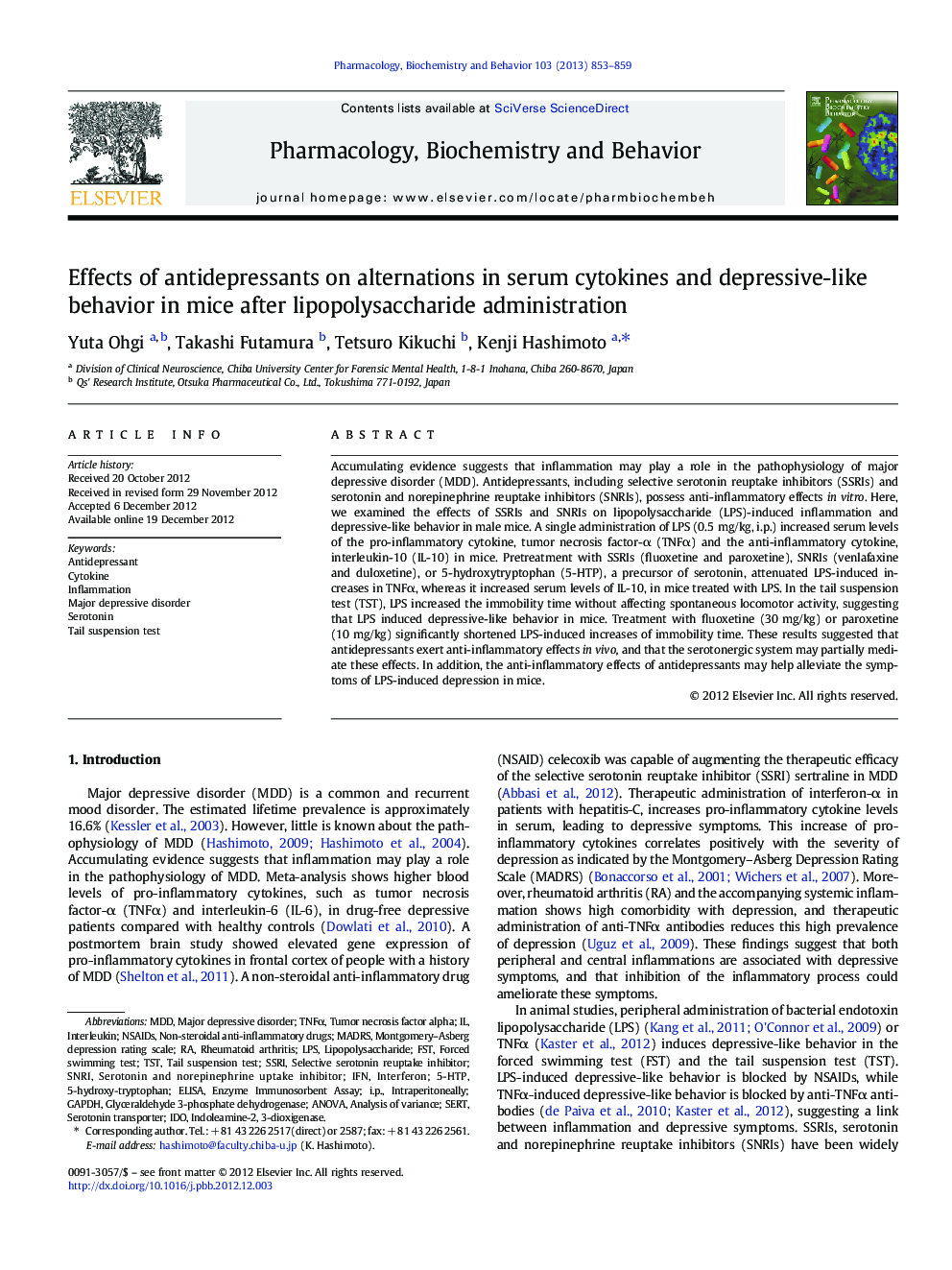| Article ID | Journal | Published Year | Pages | File Type |
|---|---|---|---|---|
| 2013058 | Pharmacology Biochemistry and Behavior | 2013 | 7 Pages |
Accumulating evidence suggests that inflammation may play a role in the pathophysiology of major depressive disorder (MDD). Antidepressants, including selective serotonin reuptake inhibitors (SSRIs) and serotonin and norepinephrine reuptake inhibitors (SNRIs), possess anti-inflammatory effects in vitro. Here, we examined the effects of SSRIs and SNRIs on lipopolysaccharide (LPS)-induced inflammation and depressive-like behavior in male mice. A single administration of LPS (0.5 mg/kg, i.p.) increased serum levels of the pro-inflammatory cytokine, tumor necrosis factor-α (TNFα) and the anti-inflammatory cytokine, interleukin-10 (IL-10) in mice. Pretreatment with SSRIs (fluoxetine and paroxetine), SNRIs (venlafaxine and duloxetine), or 5-hydroxytryptophan (5-HTP), a precursor of serotonin, attenuated LPS-induced increases in TNFα, whereas it increased serum levels of IL-10, in mice treated with LPS. In the tail suspension test (TST), LPS increased the immobility time without affecting spontaneous locomotor activity, suggesting that LPS induced depressive-like behavior in mice. Treatment with fluoxetine (30 mg/kg) or paroxetine (10 mg/kg) significantly shortened LPS-induced increases of immobility time. These results suggested that antidepressants exert anti-inflammatory effects in vivo, and that the serotonergic system may partially mediate these effects. In addition, the anti-inflammatory effects of antidepressants may help alleviate the symptoms of LPS-induced depression in mice.
► LPS induced inflammation and depressive-like behavior in mice. ► Antidepressants showed anti-inflammatory effects in LPS-treated mice. ► Antidepressants inhibited LPS-induced depressive-like behavior in mice.
